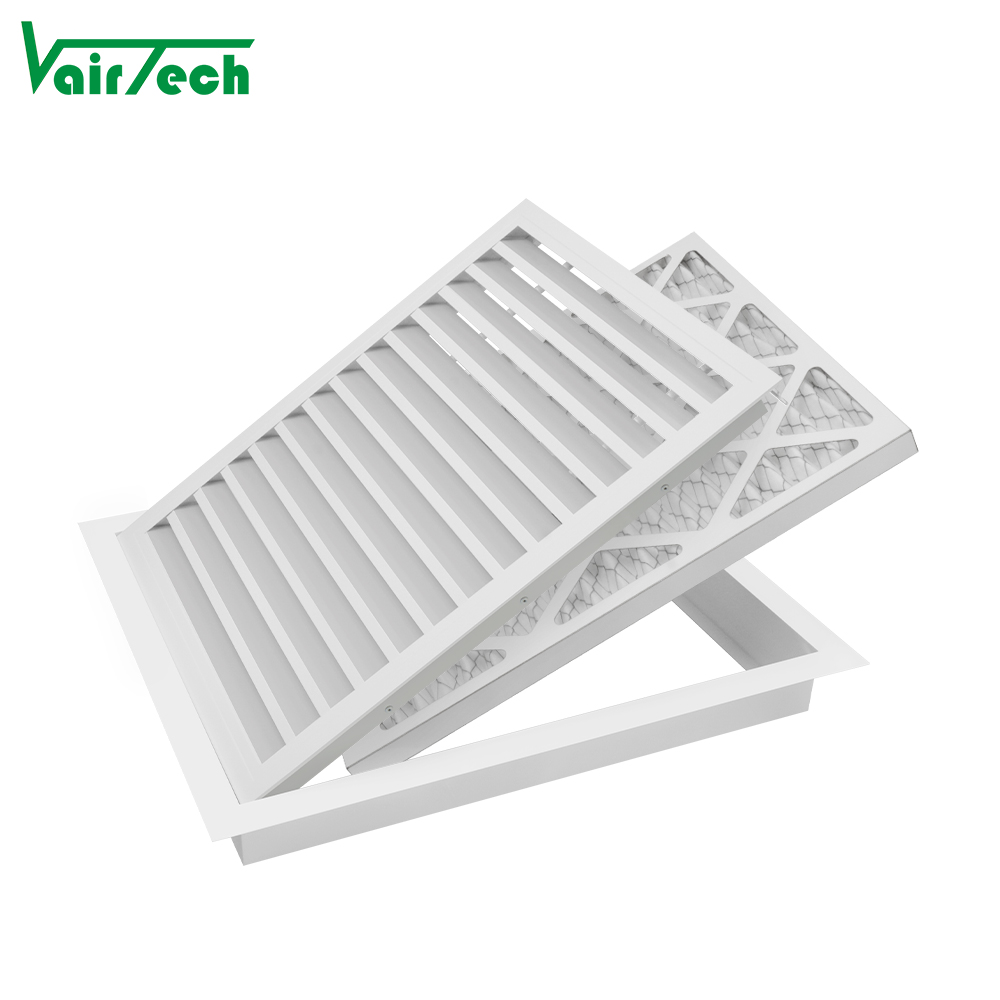Ventilation air grille diffuser
air vent manufacturer since 2002
 Vairtech
Vairtech  2024-11-30
2024-11-30
air filters Filters and air quality inside your home are closely related. The typical residential HVAC system continuously circulates around 1,000 cubic feet of cooled or heated air through system ductwork. All that air passes through the air filter located in the indoor air handler. The type of air filter impacts the health of the indoor environment as well as the cost of cooling and heating the house.

How Filter Media Matters
The filtration material inside an air filter directly affects how efficiently the filter captures airborne particulates. For typical home use when it comes to filters and air quality, three filter types are most common:
· Fiberglass. Air filters with layers of spun fiberglass typically represent the least-expensive option. They are also the least efficient when it comes to removing airborne particulates. In general, fiberglass filters will capture only the largest visible airborne dust and lint. Smaller particulates will slip through the filter and continue to circulate through the indoor environment.
· Pleated cotton or polyester. These are the midrange filters in terms of both effectiveness and cost. A cotton or polyester filter media can effectively capture up to 80% of airborne particulates down to a size of just one micron, including fine dust, airborne spores, pollen, and other irritants. Pleated filters generally offer the best balance of efficient filtration and reasonable purchase price.
· HEPA filtration. Short for High Efficiency Particulate Air filter, these most-efficient filters remove 99.9% of particles as small as 0.3 microns. In residential applications, however, the density of HEPA filters restrict system airflow excessively. Therefore, HEPA filtration in homes usually requires alterations to home ductwork or use of stand-alone HEPA filtration units that cleanse the air in single rooms or limited spaces.
Who Is MERV?
Short for Minimum Efficiency Reporting Value, the MERV rating expresses the efficiency of specific filters and air quality. Fiberglass filters generally rate from 1 to 45 on the MERV scale, while pleated cotton or polyester range from MERV 6 up to as high as 16. MERV ratings above that are usually HEPA filters.
For more information about the connection between filters and air quality in your home, contact Vairtech!